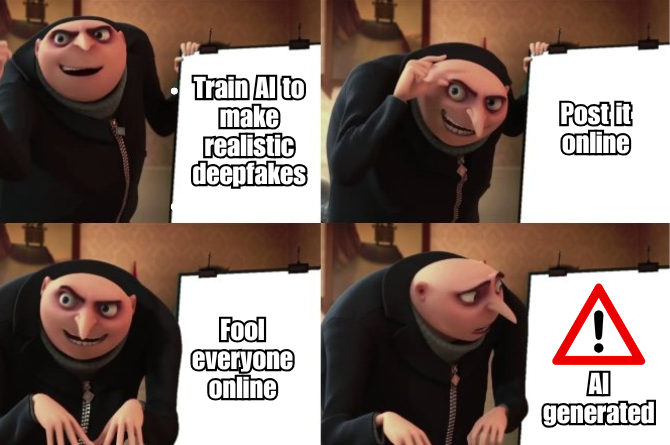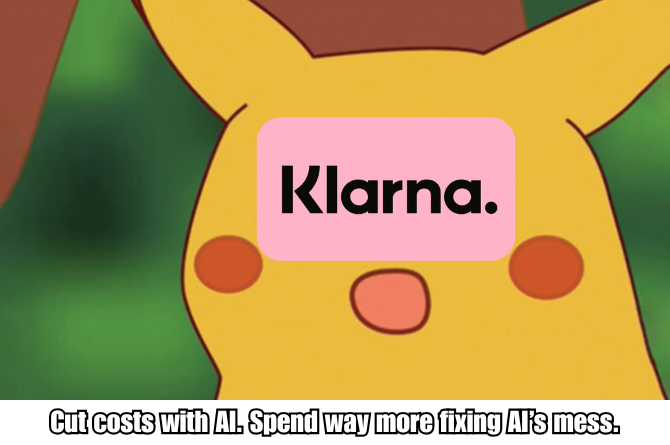September 5, 2025

Let’s start with some actual good news. mogul is on an absolute heater right now. We just pulled off our fifth sellout in ten days, which also just so happened to be our fastest sellout ever in under 24 hours. If that wasn’t enough to make you want to pop a bottle before noon, we’ve also just launched The Roman II, the spiritual sequel to our favorite child, The Roman. Same DNA, same exciting potential.
On the pop culture front, I need to confess I gave The Paper a shot…and it’s actually really good. It will definitely not dethrone my love for The Office (what could), but it’s been surprisingly sharp, funny, and more relatable than expected.
Alright that’s enough chatter; there’s a lot to cover this week, and the Sincaraz US Open Final is starting soon. Let’s get into it.
- Alex Blackwood

🍟 McDonald’s Dials Up the Deals - Brace yourself, wallet-watchers: Starting September 8, McDonald’s is going back to basics with Extra Value Meals. For the first time in ages, you can score a classic Big Mac meal for $8 or snag breakfast on the cheap with a $5 Sausage McMuffin combo, priced about 15% below the à la carte menu. It’s a not so subtle move to woo back frugal fans (especially those earning under $45,000, who fled when prices shot up 40% since 2019).
🤖 China Goes Full “AI Inside” - China just made “AI generated” the hottest label on the internet. WeChat, Douyin, and just about every major social platform must flag all AI-made content (text, video, or the weird stuff in between) with big, visible badges and invisible metadata. Creators have to disclose when they use bots, and platforms slap warnings on anything that slips through. It’s all part of the “Qinglang” crackdown aimed at deepfakes, viral hoaxes, and copyright fuss.
🍺 Garage Beer Hits the Big Leagues - Raise a can to the Kelce brothers. Travis and Jason’s Garage Beer Company just landed a frothy $200 million valuation after its first big funding round. That’s thanks to major investor Durational Capital and ex-Constellation Brands beer boss Bill Hackett, who’s joining the board. The company expects sales to explode from under $20 million last year to up to $70 million in 2025, powered by clever marketing and those NFL genes.

Once upon a fintech fever dream, Klarna, the “buy now, pay later” kingpin, was flying high at a $46 billion valuation. But nothing in techland stays inflated forever: post-pandemic reality, new tariffs, a shifting economy, and a heavy dose of fintech humility later, Klarna’s value cratered by 85%. The Wall Street IPO that was “definitely happening” in spring got tossed onto the suspense pile like a rejected loan application.
Yet as of September 2025, the company has decided the market’s finally warmed up again and is prepping to raise $1.27 billion, aiming for a $14 billion valuation. But this isn’t just a story about IPOs and investor whispering; it’s about what happens when disruption looks a lot like controlled chaos behind the scenes.
When AI Help Needs a Human Backup
Klarna made headlines this year for its aggressive pivot toward AI. CEO Sebastian Siemiatkowski crowed about replacing hundreds of support staff with bots, whittling down software, and promising slicker, cheaper service for millions of users. Bots, not bodies, would answer customer pleas. It was the future…or so they said.
Then came reality: The AI didn’t quite nail the human touch (or, sometimes, even basic coherent English). As Klarna’s customer support was squeezed down to the bone, complaint queues swelled. Mysterious payment errors, refund purgatory, and misfires that only a real person could unravel, and suddenly, those bots were less C-3PO, more HAL-9000 muttering “I’m sorry, Dave, I’m afraid I can’t do that.”
Please Hold. Your Engineer Will Be With You Shortly
Enter this week’s plot twist: Klarna, in full put out the fire before the IPO party mode, started moving employees from across the company, including marketers, coders, compliance staff, legal eagles, into customer service. You know it’s serious when the marketing team swaps campaign planning for troubleshooting payment fails, and backend engineers are now just “frontline” in a very different sense.
This wasn’t just a symbolic gesture. Klarna has a formal talent pool for roles it deems not a current priority. Employees have reportedly been told directly, “If your skills are needed for support, get ready to jump in.” One popular ritual: “Action Days” on Mondays, where staff from every corner of Klarna listen to user calls, read reviews, and, yes, try to actually solve problems. After these marathon sessions started eating into, well, all their actual jobs, Klarna made them half-days. This week, even that’s ramped up, with skeleton teams stretched across all hands and inboxes.
Chaos, Comedy, and Klarna’s Main Stage Moment
Picture this: behind the glossy IPO docs and fancy AI efficiency slides, Klarna’s big IPO relaunch meant product managers writing apology emails, graphic designers on the help desk, and staffers whose closest brush with customer support was liking a Tweet…now actually responding to tickets.
Remember, this is at a company that, at least on paper, is one of tech’s biggest success stories of the decade. In the end, while Klarna’s $14 billion IPO may still make headlines, the real vibe is much messier, more human, and at times more entertaining than any prospectus you’ll ever read.
What’s Next for Klarna?
Will Klarna’s back-to-basics scramble be enough to wow Wall Street or win back harried users? Will that $14 billion dream come true? Or will this week mark one of those perfect tech moment snapshots where ambition, reality, and a dash of panic collide? One thing’s certain: If you find yourself talking to customer support this week, it could be anyone in the company. And they’re probably just hoping you don’t ask for help with the IPO filing too.

_01K4AFCQ8B18XFY1V0DD57VH0X.png)
Our sold-out Houston flagship, The Roman, set the tone in the early days of mogul, delivering stout annualized cash yields and a record 2.6% single-month payout. Demand hasn’t cooled since, with momentum growing by the day. So we built the sequel to hit the same notes from day one, with the same DNA that made the original such a success.
The Roman II is a freshly renovated ~3,100 sq ft, 5-bed/3-bath single family STR with a private pool in Walden on Lake Houston. This marks mogul’s second foothold in this high-performing submarket. Think spacious layout, recent renovation, guest-loved amenities, and lakeside positioning designed to command premium ADRs and high occupancy throughout the year.
By the numbers, it’s tuned for performance from day one: $273,375 offering amount, projected 10.2% year one yield (pre-growth), 15.0% average yield over the hold, a 14.8% annual levered IRR, 2.5x levered MOIC, and $424,706 in levered profit.
If you missed The Roman or wish you’d taken a bigger bite, this is your second shot at the same winning playbook: lakeside location, private pool + hot tub, fresh 2025 renovation, and a returns profile built to mirror the original. Grab your spot in The Roman II before the encore sells out.


I first stumbled across Ryan Holiday years ago on YouTube, where he was breaking down ideas from classic books and old philosophers. At the time, I didn’t expect much more than a few interesting summaries. Then I picked up The Obstacle Is the Way, and it completely reframed how I thought about challenges.
Holiday leans heavily on Stoic philosophy, but he doesn’t present it like dusty history. Instead, he pulls in stories from generals, presidents, athletes, and entrepreneurs who all found ways to turn setbacks into springboards. The book’s core idea, that obstacles aren’t barriers but pathways, isn’t just repeated, it’s illustrated through real lives that make it hard not to take the lesson seriously.
What I like most is how clear and usable the writing feels. There’s no fluff, no complicated frameworks, just a reminder that frustration and difficulty are often the exact raw materials we need to grow. Reading it feels less like a lecture and more like someone handing you a lens that makes tough situations look a little different.
It’s one of those books that I’ve gone back to more than once, usually when things aren’t going according to plan. Each time, it lands differently, but always with the same effect: a little more patience, a little more perspective, and a lot more drive to keep moving. Highly recommend giving this one or any of Ryan’s other work a read; you will be hooked in no time.
⭐ 4.76/ 5.0 in my book (no pun intended)


In 2003, Valve launched Steam just to patch Valve’s own games like Half-Life and Counter-Strike but it accidentally leveled up into the world’s biggest PC gaming store. Talk about an unexpected success.

Written by Alex Blackwood & Thomas Horcel
Receive this weekly recap when you sign up for our platform